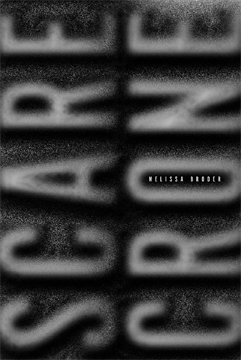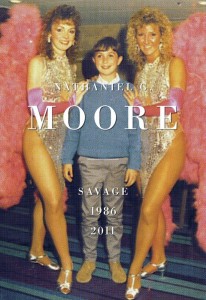Literature Party

Literature Party in Seattle tonight should be fun. If you’re at AWP, please come!
It’s a benefit party to support APRIL Festival, which is a big organization for making books awesome in Washington state. It’s at FRED Wildlife Refuge and doors open at 9. It’s not too far from the convention center. Tickets are $10 at the door.
It’s sponsored by FSG Originals and Submittable and yours truly, HTMLGiant. Vouched is putting in a pop up bookshop, and if you buy a book there, FSG Originals will give you a free one of their books.
Capacity at the venue is 450 souls, but I think you’ll be able to get in. However, I have overheard many people at the bookfair talking about how this is the one event they’re sure they’re going to.
Melissa Broder is reading. And Sommer Browning. And Amelia Gray. Those three people are three of my favorite, favorite people at AWP, a big thing filled with favorite people. Those three people are amazing performers of important writing.
Writing is a way to express ideas, and Melissa, Sommer and Amelia have the best ideas. Hearing them read inspires me, every time.
And after they read, there will be a big dance party featuring local Seattle DJs.
I’m in a big house where many of us HTMLGiant writers are staying. I think there are 12 of us staying here. John Dermot Woods just got out of the shower. He doesn’t write for HTMLGiant actually, neither does Spencer Madsen or Mira Gonzalez. Last night Mike Young came home from his reading and fell over a chair. There’s a hot tub at this house and I think there were 8 or so people in it last night at the same time. Downstairs Amy McDaniel is preparing a brunch for 50 people. I can hear Tim Sanders making Gene Morgan laugh loudly.
Come to Literature Party tonight?
What are you most looking forward to at this year’s AWP?
And for anyone not going (like myself), what are you doing instead this weekend? I’m thinking of going to see Marnie Stern, even though it’s an outdoor show and the forecast calls for snow.
Penny Goring’s LOVE TESTER DELUXE is now available as an E-book from Peanut Gallery Press and you can check it out here
Please Come Home
 Please Come Home
Please Come Home
by Guthema Roba
North Star Press, 2013
80 pages / $12.95 buy from North Star Press or Amazon
Rating: 8.5
Like milk from a cactus tree
Love is pouring around me
-Guthema Roba
I came upon Please Come Home, a collection of poetry by Ethiopian born Guthema Roba, while browsing the stacks of the public library. The discovery was instantly familiar and challenging. In the tradition of ecstatic Sufi, Zen, and Urdu poets, Roba celebrates life in a storm of lyricism.
He trends towards the prescriptive, citing koans, “Before enlightenment, chop wood, carry water. After enlightenment, chop wood, carry water,” using poetry as a means of experiencing life.
In “A Poet’s Responsibility,” he writes, “A poet’s responsibility is to awaken/ to remind you of your beauty/ To be the arrow of light/ Pointing at your heart.”
The poetry’s simple imagery often mirror the classic themes of Sufi poetry: dissolution of Ego, unity with the beloved, reverie in life. READ MORE >
February 25th, 2014 / 3:26 pm
Edward Mullany Interviews Melissa Broder
 Every time a new book comes out from Publishing Genius, the author is interviewed by the author of the previous PGP book. I’m pleased to present a bunch of questions that Edward Mullany (author of Figures for an Apocalypse) posed to Melissa Broder (author of SCARECRONE). —Adam Robinson
Every time a new book comes out from Publishing Genius, the author is interviewed by the author of the previous PGP book. I’m pleased to present a bunch of questions that Edward Mullany (author of Figures for an Apocalypse) posed to Melissa Broder (author of SCARECRONE). —Adam Robinson
EDWARD: Can you talk about the figure of the “Scarecrone” as she relates to your book as a whole? What is her significance?
MELISSA: The Scarecrone personifies my fears around time, death, and the loss of physical beauty / sexual desirability. She is a dry succubus, a cautionary tale of the inevitable and the perceived inevitable. She is a mirage. But she is a powerful mirage. She is dangerous in her unreality. She may have something wise to teach. On a social level, one might say she is the ghosts of discarded women in a culture obsessed with youth, though this book doesn’t really fuck with culture, because I don’t really fuck with culture. I fuck with me, mostly, and my own obsession with youth. I fuck with time. I fuck with fucking. Also death.
To your mind, is the difference between “the inevitable and the perceived inevitable” a significant one? What is that difference?
I made the distinction here, because death is (historically) inevitable, whereas time’s slow, cruel drain on my worth as a human being is a perceived inevitability. Where did I get this fear that to grow old is to become worthless? Did I get it from culture? From my mother? From nature? It isn’t a truth in the way that death is a truth. And intellectually, I know it’s not a truth at all. But to me, on a visceral level, it’s a very real fear. And it dictates a lot of my actions. And I can probably make it true if I believe it enough, or at least I can will my own misery. So I guess I’d say that the inevitable and the perceived inevitable are different, but that one’s reality and one’s perceived reality are the same.
You mention that the Scarecrone can be understood as a sort of succubus. Does this suggest that your poems are concerned as much with the supernatural, or spiritual, as they are with the physical? Or does it suggest something else?
I tend to negate the value of the physical world and reach for realms of fantasy, the imagined, the spiritual. I think that’s because I’ve always found it difficult to live in a body and sought union with something bigger than me for relief. It’s that tension between soul and body that compels me to write poetry. If I could choose my ideal god it would be a god that protects me from pain, from people, from life–a god that makes me feel blissed 100% of the time. It would basically be heroin, except it wouldn’t be a false god, because I wouldn’t be dependent on anyone or anything for it. And I would never come down. And believe me when I say that I have tried to make many tangible things into this god. And believe me when I say that you always come down. I mean, I have had a lot of those peak experiences in life–those ecstatic whoa moments that feel lotusy and like I imagined ‘spirituality’ would be. I am a succubus for those moments. But I’ve found that even when they aren’t attached to a drug or a lover or a guru or X or Y, they aren’t sustainable. But then there is this other kind of spirituality that is tangible, not as showy, the kind that works through people, action based, pause-based, stillness, quiet moments of gratitude for nothing, a not-reaching for glitter, a more Earthy spirituality, laughter. Its lack of glitter, its humanity, is counterintuitive to me. And it is exactly what I need. It has been instrumental in keeping me on the planet.
READ MORE >
Managing Editor

Hey Everyone,
Blake and I have decided that I will be managing this site for a while.
If you’ve never heard of me, I started this site with Blake, I love the beach, own a high-end retail store, and have two wonderful children and a loving wife that refers to me as her “ladyman.”
Blake will continue to be the Executive Editor of Htmlgiant, and I will listen to him when he has something to say. He is my boss.
Up until this point, for the past 5-6 years, writers have published their own posts without having to get them approved. We changed this ten minutes ago.
This will allow us to address problems with content before it goes live, time posts appropriately, stop embedded video from looking all fucked-up, and generally make everything more cohesive.
What does this mean for you? Well, for one, you’ve got a new buddy! I’m your buddy! Other than that, it depends.
I will answer any and all questions below. You can also reach me at gene@htmlgiant.com if you’ve got a less-public concern.
I love you all, and thank you for visiting us at Htmlgiant,
Gene
Sick with Anxiety: On Ben Marcus’s Leaving the Sea
 Leaving the Sea
Leaving the Sea
by Ben Marcus
Knopf, January 2014
288 pages / $25.95 Buy from Amazon
“I’d been thinking for years about language as a toxic substance,” said Ben Marcus in a 2011 interview with HTML Giant. “Language itself making people sick. Speech and text, all of it poisonous.”
He continued, “I seem to write about language a lot. Language as a physical substance with deviant powers: a powder, a drug, a wind, a medicine. I can’t really help it.”
Ben Marcus is obsessed with language on a sort of sadomasochistic bent. Consider this invective: “In English, no matter what you said, you sounded like a coddled human mascot with a giant head asking to have his wiener petted…”
And, “English, in which every word was a spoiled complaint, a bit of pouting…”
And, “…a whiner’s tongue.”
And, “At least overseas he didn’t speak much English.”
And, “….he spat his useless English.”
All of these are taken from Leaving the Sea, the new collection of short stories from Marcus, who is bound and determined as ever to make us sick with language. Leaving the Sea is divided into six sections on loose formal and philosophical grounds, and in loose order of obscurity and opacity.
The collection begins safely, with Marcus’s most accessible work, although there isn’t much in the way of traditional resolution even here. The key to any good relationship, the writer/reader one included, is a managing of expectations, and nowhere in even his most outwardly inviting writing does Marcus hint at anything that suggests closure and a case of the warm-and-fuzzies.
Another consistency: Marcus’s characters are consistently on the wrong side of power balances, often for reasons unclear. The opening story, “What Have You Done?” features a protagonist who has returned “home” for a family reunion of sorts, only be shunned and vilified by a family that seems equally bemused by and afraid of him. We see hints of an “old Paul” boiling over throughout the story, but the title of the story remains a taunt, as we never quite find out what Paul did. (To consider this a spoiler, by the way, is to miss the point of Marcus’s writing, which can be very much like tantric sex sans orgasm. I mean that in a good way.)
The characters we meet in Leaving the Sea are often achingly sad, borderline alexithymic, and resigned to a fate over which they have no control. Despite the harsh sense of determinism, Marcus’s characters all seem to feebly make attempts to control what little they can. Fleming in “I Can Say Many Nice Things” is a serious writer forced to lead a creative writing seminar aboard a cruise ship for financial reasons while trying to resist the temptation of an affair with an enthusiastic student as a small act of mitigation against his bitter wife back home.
In “The Dark Arts”, Julian fends off nighttime invaders in a Düsseldorf hostel while undergoing experimental treatments for a rare immune disease — an “allergy to my own blood”, he calls it — all the while waiting for his girlfriend, who has yet to arrive from France after a lover’s quarrel. When she does materialize, cold and aloof, we’re left wondering if Julian might have been better alone, a thought not lost on him. “Had anyone,” Julian wonders at one point, “ever studied the biology of being seen? The ravaging, the way it literally burned when you fetched up in someone’s sight line and they took aim at you with their minds?”
If it is a subterranean discomfort the reader feels in the first three stories, the last of Part One, “Rollingwood,” carries it to full nausea. Mather is the father of a sickly child, afalter in every aspect of life, and seemingly unable to summon the strength to fight back against an ex-wife and a potentate boss who appear supercilious towards his continued being, particularly when his usefulness runs out. What transpires leaves the reader feeling gutted, somehow disappointed to the point of sickness, although one could hardly call it a visceral story. The language is plain, inviting even, but weighted with sadness.
Part Two consists of a series of interviews with a series of cultural tastemakers/gurus who believe they hold the key to a happier life by way of shunning the adult world. One, in a not-so-subtle allusion, believes that perhaps we’d all be better off in a cave, though this one has no light by which to project any shadows at all.
Parents — and more specifically, the child’s Stockholm-syndrome-like sense of duty towards them — dominate Part Three, which is comprised of two stories. The first is a meditative essay by a man who wonders for the length of the story how his actions or inactions might hasten or delay the death of his mother. The story is rife with a sort of realistic morbidity, particularly in the passages that describe different scenarios in which the mother’s body might be found, and after how long. The second story of Part Three, “The Loyalty Protocol”, takes place in another of Marcus’s miasmatic hinterlands between our world and a bleak alternate reality. During a series of drills for an unspecified threat, Eddie must choose whether or not to break rank and bring his senescent parents along, who have not been called to the rendezvous point.
Part Four is comprised of a single story, “The Father Costume”, which is particularly unsettling in not only its bizarre, arcane imagery, but in its ever-shifting set of linguistic paradigms, with characters all seeming to speak a different language and there being no real common phrasing to latch on to, ensuring the reader never has a complete grasp on the world Marcus has created. (The story, it should be noted, would appear to be a reworking of a 2002 book of the same title by Marcus and fellow author Matthew Ritchie.)
It’s often hard for a reader to determine whether a writer is challenging them, or just fucking with them, and the queasy feeling one gets through this story makes it either one to deep read or skip altogether, depending on your predilections as a reader. All the same, it seems like just the sort of story Marcus had in mind when he said, in the same interview:
“In the end I want to write things that I don’t know how to write, because this seems to command the most energy and desire and attention from me. It makes me sort of sick with anxiety. When I’m uncomfortable and confused and curious I tend to try much harder to figure things out.”
The language games continue in Part Five with a set of stories that seem aimed at putting the mundane into new dialectical contexts. “First Love” is a stumbling attempt by a nameless narrator to frame his amorous attempts in a language we might understand, even taking the time to tell us, “The word body used to refer to the evidence left behind that someone has died.” As with many of his stories, Marcus refuses to tell us whether the “used to” here implies a futuristic world, or merely the shattering of an individuals that renders language, at least in the objective sense, largely moot, a la Kate in Markson’s Wittgenstein’s Mistress. Each story of this section poses that same question, as family life and relationships and lovemaking are all forced through the cracked lens of Marcus’s devising.
February 24th, 2014 / 11:00 am
Savage 1986-2011 by Nathaniel G. Moore
 Savage 1986-2011
Savage 1986-2011
by Nathaniel G. Moore
Anvil Press, 2013
256 pages / $20 Buy from Amazon
“If I had to write a will, it would only fill a matchbox flap. But a self-involved snuff letter would occupy months of effort, filling thousands of Bristol board sheets on both sides: the meticulous marinating of my family’s kamikaze descent.” With these tattered lines Nathaniel G. Moore takes us on an exhilarating tour of life in the strangest, coldest, and most depressing of families, set in the city that recently brought the world Rob Ford, packaged (according to Wikipedia) as a New Order box set. (Note: each chapter save for the prologue is named after a song by the post-punk electro band).
Set between the summer of 1986 and the late spring of 2011, the book unevenly chronicles, with an honest treatment, the rise and fall and (attempt at reuniting) a middle-class family from the suburb of Leaside in Toronto.
When Nate, a messy, lusty, mouthy yet anxious kid turns twelve years old, his father takes him to a wrestling match where he sees Randy “Macho Man” Savage live for the first time. (It should be noted that at the match, Nate is a fan of Ricky Steamboat and wants Macho Man to lose. This attitude towards the titular wrestler of course changes drastically in short order.)
Early on, the teenage fumbling of Nate and a friend named Andrew turn into a suggestive game of power and what appears to be, an area of interactions between exploration and abuse or a hazing. Yet their friendship seems to be the only non-family, non-fantasy thing in Nate’s life. At one point in grade nine, the narrator says, “Andrew was quickly becoming my whole world.”
Another factor contributing to Nate’s fear of isolation is the departure of his older sister Holly to university. As Nate says goodbye to the nineteen eighties and its Kodacrom of idyllic summer bike rides, swimming pools and erections, the nineties comes in with a bang of economic woes, family blows and dying grandparents. Holly’s returns on weekends are fuzzy, hungover interactions that play out in tender vignettes between slowly estranging siblings.
When Nate’s maternal grandmother dies during his last year of high school, his nostalgia kicks in at high gear the day of the funeral. “I urged everyone to watch the last known footage of Grammy, at which Uncle Carl waved me away, suggesting it wasn’t the time. That was it: she was gone.”
While Nate conjures up wrestling fantasies to portray his intense friendship with Andrew, the fantasy is not reciprocated, tolerated or understood. Soon Andrew withdraws from interacting with Nate, leaving him in the throes of conflict with an abusive father, a nervous mother and barely-there older sister. Just when things couldn’t get any weirder for Nate, his father loses his insurance job and begins working at a funeral home owned by Andrew’s father. For the next couple of years Nate and his father feud and fight in a series of two or three punch fights, including a grotesque display of callous behavior on both father and son during a family visit to Aunt Rebecca’s house. After mouthing off about keeping Nate’s mom out of the financial picture should she ask for a divorce, Nate begins to cry and retreats to the car outside where he fumbles for a cigarette. When his father goes to check on him, Nate loses it. “How could you say that about Mom you piece of shit!” Nate shouts with tears before pulling his father out of the car, throwing him into the snow and kicking him in the stomach.
Within a year of the incident, Nate’s fears come to fruition and his parent’s divorce. Nate spends years couch-surfing, pill-popping, a drug overdose, all the while trying his best to get back into University. The vitriolic charges portrayed in letters and voice messages sent to family members demonstrates the drama going on in the protagonists head and also draws on an element of wrestling subculture: the shoot interview style, which of course I put together when later in the book we discover that Nate’s knowledge of wrestling as a teen leads to a part-time job at a media website. A wrestling shoot interview is a popular form of video interviews ex-wrestlers does to tell their side of an infamous wrestling storyline or backstage drama. There are literally hundreds of them on Youtube. The later half of the book acts as a rerun of Nate’s unraveling, reliving the pain of growing up, the rejection of his parents and his years “pilled out of my mind”.
The prose are at times detached, poetic and marred by emotional analysis. Footnotes add to the tell-all feel the novel oozes with, and accompanying artwork by Andrea Bennett and Vicki Nerino give the book a sickly sweet aesthetic.
With its multiplicity of domestic settings and kaleidoscopic mix of wrestlers, Christians, truth, evil, George Michael, masturbation, sibling rivalry, the mental health system in Canada, New Order, eventual redemption, Savage 1986-2011 is a memorable memoir packaged as a novel, not to be read by candle light too close to your own family’s powder keg of secrets.
***
Jenny Simpson is a poet and visual artist living in Edmonton, Canada.
February 24th, 2014 / 11:00 am

